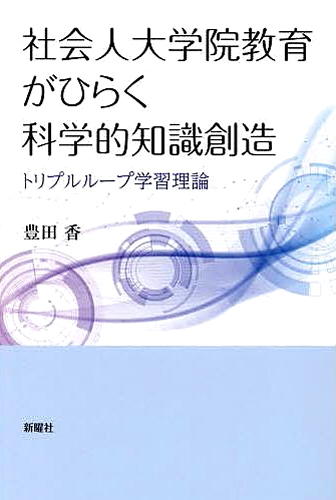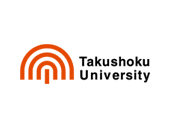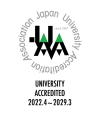【Bekka, Intensive Japanese Language Program】Education and Study: Scientific Knowledge Creation Through Graduate Education for Working Adults―Triple-Loop Learning Theory (Japanese) by TOYODA Kaori (Bekka, specially appointed lecturer)
掲載日:2023年03月20日
Scientific Knowledge Creation through Graduate Education for Working Adults—Triple-Loop Learning Theory
【日本語版】教育研究:『社会人大学院教育がひらく科学的知識創造―トリプルループ学習理論』豊田香(別科・特任講師)著
The intellectual level of working adults in Japan lags far behind those of developed countries mainly in terms of the specialized knowledge required to address science acquired through graduate education. To tackle this problem, the principles of the definition of graduate education for working adults must be re-explained from the perspective of andragogy, and their value must be enhanced. Triple-loop learning theory is one that seeks answers to the questions of how working adults can enhance their professional skills if they study in graduate school, how companies can link graduate school education to corporate performance, and how graduate schools can improve the quality of graduate education for working adults and not only for training researchers. It is an educational principle that explains the creation of scientific knowledge. Moreover, it is a plain theory that intends to enable policymakers to understand the principles of the profession. The author wrote this book in an earnest hope that graduate education for working adults in Japan will become a widely accepted part of job selection and design after graduation. (From "Foreword, Chapter 1")
Main contents
Preface
Chapter 1: Inferiority of the Knowledge Level of Japanese Working Adults from the Global Perspective 1. Inferiority of the Knowledge Level of Japanese Working Adults in View of the World 2. Factors that Hinder the Quantitative Expansion of Recurrent Education in Graduate Schools for Working Adults from the Viewpoints of Individuals, Companies, and Graduate Schools
Chapter 2: Necessity of Recurrent Education in Graduate Schools as Indicated by Domestic and International Circumstances
1. Humanitarian Standpoint for World Peace--by the International Conferences on Adult Education (CONFINTEA)
2. "Sustainable Development"--A Paradigm Shift in Global Development
3. New Opportunities for Corporate Strategy: SDG Management and ESG Investment
4. Absence of Leadership during the Fourth Industrial Revolution
5. The Era of 50 Years of Professional Career under International Mobility: Scientific Knowledge as a Career Development Axis
Chapter 3: Knowledge Circulation Between Graduate Education and Society: Triple-Loop Learning Model
1. Graduate Education in the United States as a Leading Example
2. Background Knowledge for Generating a Japanese-Style Success Model
3. What is the Knowledge to be covered in Graduate Education?
4. Attempt to Generate "Triple-Loop Learning Theory" for Explaining the Japanese Type of Reflective Practice
Chapter 4: Case Study--Learning Experiences of Working Graduate Students in a Professional Graduate Business School
1. Knowledge Transfer
2. Four Research Frameworks
3. Study 1: Knowledge Transfer from the Perspective of Course Satisfaction Criteria
4. Study 2: Post completion Knowledge Transfer and Changes in Professional Identity
5. Study 3: Characteristics of the E-Loop of Working Graduate Students at the Time of Enrollment
6. Study 4: Internal Learning Experiences of Working Graduate Students in Business Schools
Chapter 5: Generation and Potential of a Successful "Layered Triple-Loop Learning Model"
1. Summary of Chapters 1 to 4
2. Generation of the Layered Triple-Loop Learning Model
3. Sharing the Layered Triple-Loop Learning Model and its Potential
Postscript

出版社
Shinyosha
発行日
November 15, 2022
著者

Author: TOYODA Kaori is a Specially Appointed Lecturer at the Bekka, Intensive Japanese Language Program, Takushoku University. Born in Tokyo, Japan, she graduated with a BA of Economics from Chuo University and completed her MA in TESOL at Teachers College, Columbia University and PhD in Education at the Graduate School of Education at the University of Tokyo. After working for DINOS CORPORATION, she spent 3 years in Switzerland and 2 years in New York and worked as a video translator and part-time lecturer at Tokai University before assuming her current position. The author specializes in adult education and learning (graduate education for adults, global education, and career development), qualitative research methods, and English language education. This book was featured in an interview in the magazine Innovative Learning (April issue). She is the coauthor of Catalog TEA (Japanese) (Shinyosha, 2023), “Narrative dehiraku gengokyoiku—rironn to gissenn” (Japanese) (Shinyosha, 2021), “TEM (Trajectory Equifinalty Model) de hirogaru shakaijisso—raifu no jujituwo shiennsuru”(Japanese) (Seishin Shobo, 2017), and “Studies in Adult and Community Education No.60 edited by the Japanese Society for the Study of Adult and Community Education: Research Methodology in Lifelong and Social Education” (Toyokan Publishing House, 2016), among others. She was the first author of the following papers: “Case Study: An Educational Dialogical Approach to the Development of New Future I-Positions as Promoter Positions for University Students: Theory, Practice, and Outcomes” (International Society for Dialogical Science [ISDS]), e-book DIALOGICALITY [2021]), and “Career Development of Highly Skilled Foreign Residents in Japan from the Perspective of Work Permitted Status of Residence” (Japanese) (Journal of Human Resource Development [2023]).


